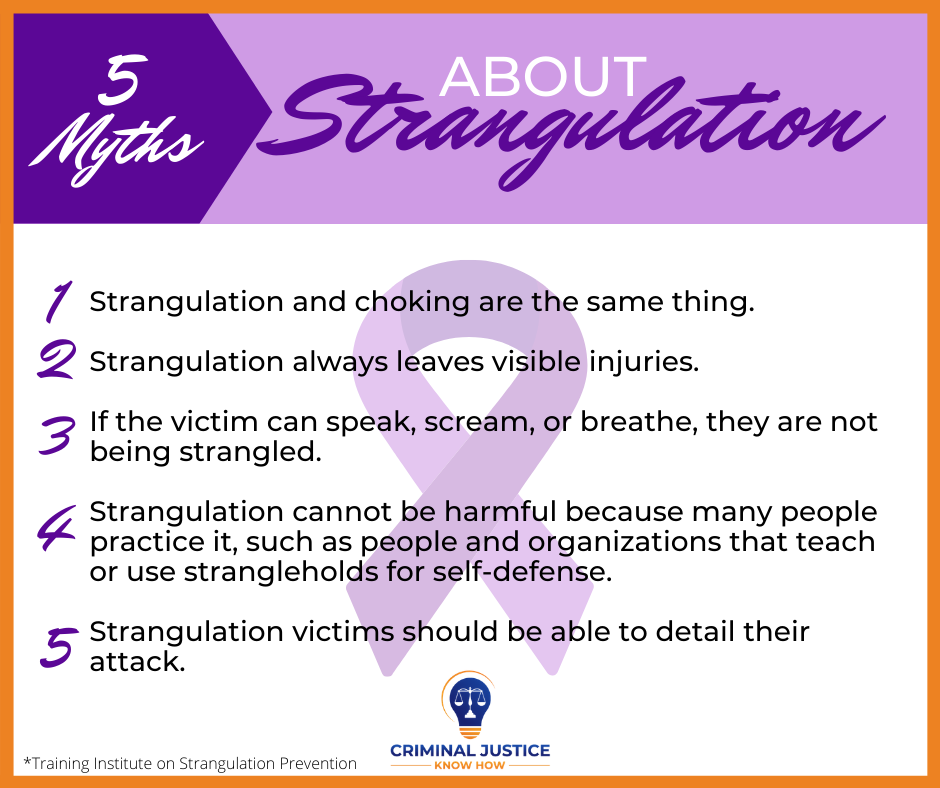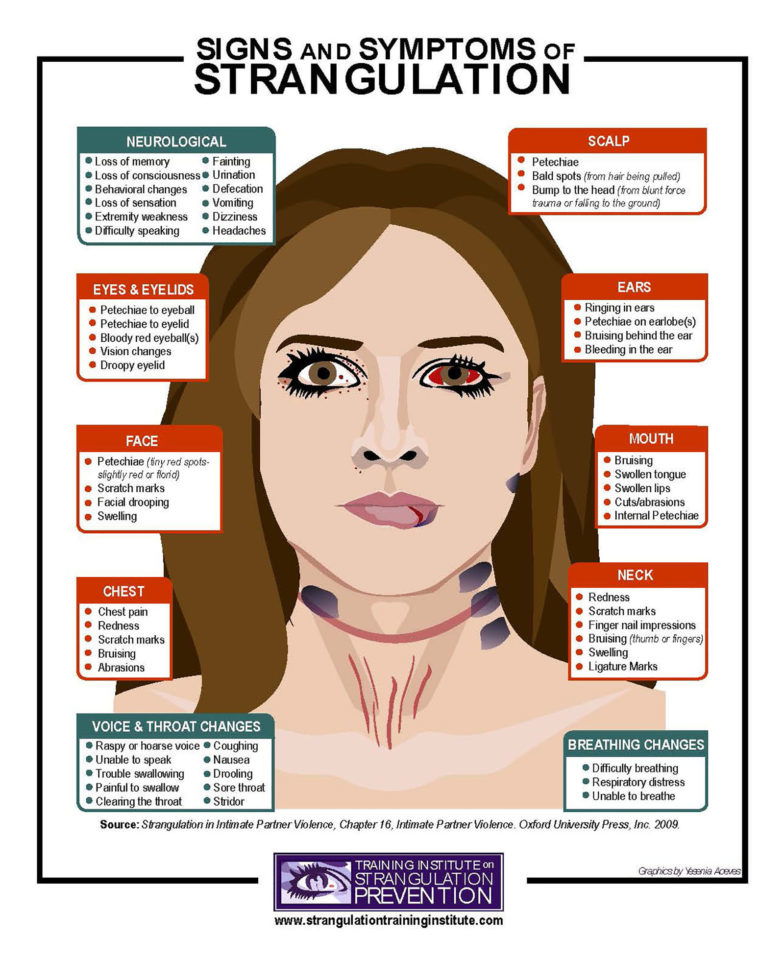November is Strangulation Awareness Month
NOVEMBER is Strangulation Awareness Month
Strangulation is defined as asphyxia by closure of the blood vessels and/ or air passages of the neck as a result of external pressure on the neck.
It is subdivided into three main categories: hanging, ligature strangulation and manual strangulation.
What happens to your body during strangulation?
Strangulation (strangling) is when something presses or squeezes on your neck. The squeezing may stop the blood supply going to your brain, or it may stop the air going to your lungs. It may make you lose consciousness (black out) and stop breathing. Being strangled may cause you serious health problems. It also leads to death--within minutes.
How long does it take to strangle someone to death?
To completely close off the trachea (windpipe), three times as much pressure (33 lbs.) is required. Brain death will occur in 4 to 5 minutes, if strangulation persists.
The following are major indicators of being strangled:
While bruising and neck lesions are not always present on a strangulation victim's neck, there can be other recognizable signs and symptoms which include: difficulty swallowing, ear pain, vomiting blood, swollen tongue, lightheadedness, bloodshot eyes and changes in vision, slurred speech, or raspy voice.
- a sore throat
- difficulty swallowing
- neck pain
- hoarseness
- bruising on the neck or behind your ears
- discoloration on your tongue
- ringing in your ears
- bloodshot eyes
- dizziness
- memory loss
- drooling
- nausea or vomiting
- difficulty breathing
- incontinence
- a seizure
- a miscarriage
- changes in mood or personality, like agitation or aggression
- changes in sleep patterns
- changes in vision, such as blurriness or seeing double
- fainted or lost consciousness
How can you tell if someone is strangled to death?
Facts You Need to Know
- Strangulation is a significant predictor for future lethal violence.
- If your partner has strangled you in the past, your risk of being killed by them is 10 times higher.
- Strangulation is one of the most lethal forms of domestic violence: unconsciousness may occur within seconds, and death within minutes.

Strangling during sex or "breath play" can take a turn for the worse in seconds. Strangulation is one of the most serious and deadly forms of abuse is physical, but many survivors are still hesitant to label strangulation or “choking” as abusive.
